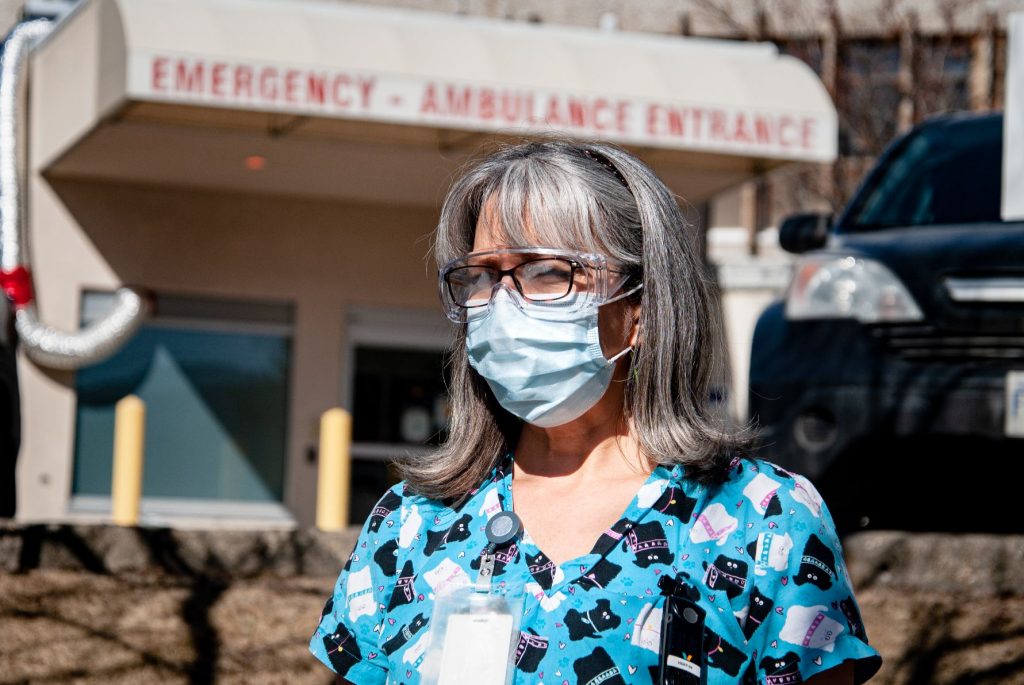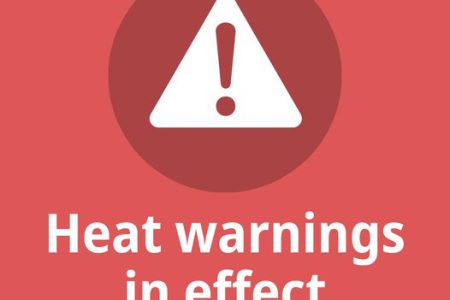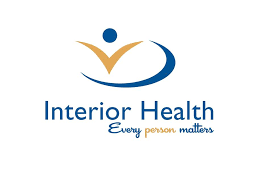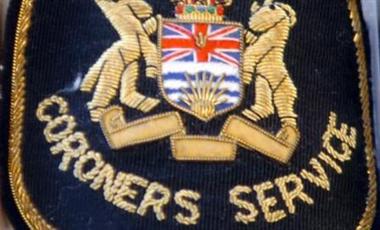LIVING HERE FEATURE: Check up on local medical professionals one year into pandemic
Dr. Kyle Merritt is what you call a busy person. He works part-time in the emergency department at Kootenay Lake Hospital in Nelson, British Columbia, where he happens to be the current department head. Kyle also has a group practice. That means looking after patients in the clinic and hospital and long-term care settings. On the side, he teaches University of British Columbia residents and students. Not to mention spending time with his wife Courtney and three children, Brynn, Leah, and Caleb.
Kyle is family-oriented, born and raised in Castlegar, with his two sisters. His mom was a teacher, and his dad a family doctor who still practices in Castlegar today. Kyle grew up going to the United Church in Castlegar and still occasionally attends with his parents, who are active members. Their church is a vibrant, engaged community.
“That was definitely a big part of my experience growing up, going to church on Sundays and being part of that community, going to church conferences and various other things like getting confirmed in the church.”
The values he learned growing up in the church: do unto others as you would have them do to you, was a major part of him going into medicine. Kyle’s parents taught him to be a responsible citizen and to take good care of others.
“I have fond memories of growing up in the church.”
His parents also taught him the value of being outdoors.
“We spent a fair bit of time being in the woods. My dad would take us canoe camping and hiking. Doing these things helped establish a connection with nature.”
The family lived next to the Columbia River, and he describes his childhood as idyllic. Being outside was a significant part of that, and Kyle had the freedom to ride his bike all over, play in the forest, build forts and dams on the creeks and explore the river. Kyle remembers bright, clear summer skies, essentially free from wildfires.
“That’s what I did for most of my childhood.”
LIKE GOING OFF TO WAR
Kyle has seen the pandemic’s significant impact on health care workers.
“It’s having different health impacts on nurses, physicians, clerks, technicians – all the different people who work in a hospital. Some people are doing fine, and some people aren’t. Just the grind of the huge changes Covid has made into the way that we care for patients.”
Health care workers needed to adapt to the ever-changing protocols and procedures over the last year, bringing mental and emotional challenges. The early pandemic was especially trying for medical professionals, says Kyle.
“Certainly in the early days, it was a ‘going off to war’ mentality that many of us had. Thinking about having to leave our families and what kind of personal risk we might be taking. There were significant stressors that everyone coped with differently.”
For many health care professionals, fear and worst-case scenario thinking has posed challenges to mental well-being. For Kyle, this state of being is the new normal.
“Depending on people’s age and health, the health of their families, they perceive the threat of Covid differently. Overall, we’ve been quite lucky and haven’t had to deal with high numbers of cases.”
Although rural Kootenay communities are certainly faring better than many regions of the province in terms of Covid case numbers, it has been a highly emotional time, right across the board.
SO MUCH CHANGE
Thea Whelan is another very busy professional in the healthcare field. Thea moved to Rossland this September from Victoria, where she worked as a Licensed Practical Nurse (LPN). Since starting her new job in November as an LPN in the Trail hospital’s surgical department, Thea juggles school as well studying as a first-year student in Selkirk College’s nursing program. There is no bridging between being a LPN and a Registered Nurse, so she must complete four years of training to get her registration.
Thea went through the pandemic onset transition while working in Victoria. As Kyle described, it was a rather stressful time for her, too.
“There was a lot of changing information, a lot of changing ideas coming between the World Health Organization and the Health Authority. We really changed. Personal Protective Equipment needed to be used, and we worried about running out, so there was a lot of scarcity. It was a huge transition. It was a scary time.”
Things improved for Thea somewhat when she started working in Trail.
“Coming to the Trail hospital, all those things had been worked out. I felt a lot more relaxed working there.”
The hardest thing about nursing during Covid for Thea is witnessing the extra hardships her patients face.
“People are still ‘normal’ sick. They are still dealing with life-altering surgeries and diagnoses. They completely lack the support of having family members there. On the surgical units, we get patients who, because of Covid, are lacking so much emotional support.”
Even people who are palliative (requiring end-of-life care) struggle more than usual, which is challenging for Thea to witness.
“It’s really hard for their families. Everyone is struggling without that support. If someone is palliating, they are able to have one family member, but that means that family member doesn’t have their support system. It’s a huge strain on individuals and their relationships.”
Thea notices that patients face loneliness, boredom and long periods of isolation without the social connections usually present during trying times in the hospital. Thea and the other nurses are doing their best to provide extra support, but it can be tricky because they have their duties to fulfill.
“As nurses, we are that constant support while in hospital. We are stretched so thin. Nurses are having to see three to four patients and be that support system as well as getting all of the medical/clinical side of things done. It’s pretty difficult.”
She notices that amongst her coworkers burnout is high. She has a sense of why.
“Nursing has always and will always be an emotionally draining job, and so having things like socializing, like a yoga class, helps us recover. Those are kind of absent right now. The things outside of work that we fill up our cup. So it is something that I definitely see.”
SMALL TOWN PROFESSIONALS, BIG PICTURE
Covid-19 caused Dr. Kyle Merritt to consider the big picture of human health and it’s connection to where we live.
There was a turning point moment for him at the end of summer 2020. Deep into the pandemic, the smoke from wildfires was quite severe. He realized that wildfires are becoming a reality of life here in the Kootenays.
“This hit home for me. Working in the emergency department in the fall and it was one of the days you really didn’t want to be breathing heavily outside, and then I was inside wearing a mask, and it struck me that as human beings we ruined the air outside and then we’ve ruined the air inside, during the Covid-19 pandemic, it wasn’t safe to breathe the air inside.”
Since moving back to the Kootenays seven years ago after some years away, Kyle notices that life in the Kootenays is changing.“I don’t have any recollection growing up of having my summers affected by wildfire smoke. Since I’ve moved back, probably half the summers at least have been quite severely affected by wildfires. It’s quite obvious to me that things are changing for us.”
Kyle worries about the health of Kootenay residents. People with respiratory conditions suffer during the smoky summer months. There are also hidden impacts, he says.
“When the fires are on I’m often working in emergency, my anecdotal impression is that I’m seeing more people that are affected mentally by the smoke than people who are affected through their lungs. The mental health component is just as big if not bigger.”
Patients with Post Traumatic Stress Disorder, anxiety, and other pre-existing mental health conditions can be significantly affected by the smoke and abandoning their usual activities to stay inside.
“People who are anxious do feel trapped and restricted, so that brings up people’s anxiety in general. For people that don’t have underlying mental health conditions, having the wildfire smoke impacting the daily ability to exercise or do things they like to do outdoors starts to have a major effect on their health. Just like we see with Covid, where people have become more isolated.”
Kyle is making a difference by talking about climate change to his colleagues, students, and medical residents.
FILLING THEIR CUP TO KEEP CARING FOR PATIENTS
Practical Nurse Thea also sees a connection between climate change and health, but she finds this connection does not come up often in conversations with patients.
“When we’re going through a crisis, it’s hard to look outside of ourselves.”
Thea is concerned about the future of our isolated Kootenay communities, especially for people who require the support of mental health and addiction services.
“As climate change progresses, so too will the economy have to adapt. And I worry about this area and the socio-economic issues that are going to come if jobs leave the area. We really need to have more social support in the area to be able to move through the coming challenges.”
All over the Kootenays, residents are adapting, just like our healthcare workers.
Thea believes that nurses can make a real difference in their patients’ lives, even now when their time is even tighter.
“I really love nursing. It feels good, even though sometimes it feels like you’re failing to be that person for people. You were the person there at 3:00 a.m., even before Covid happened. When things felt scary, when things felt lonely, you were able to be that support. That’s something that I’ve always loved: feeling useful.”
Thea has ways of filling her cup.
“I have a really supportive partner and a pretty good social network, even distanced. So those things probably help, but I think what I’m struggling with when I’m really struggling is finding the task I can do, and the thing I can do to feel useful and to feel helpful to others is for me the thing that helps the most kind of get through it.”
Copy and photo courtesy of Living Here, a West Kootenay Eco-Society Publication, and can be found here: https://livinghere.ca/


























Comments